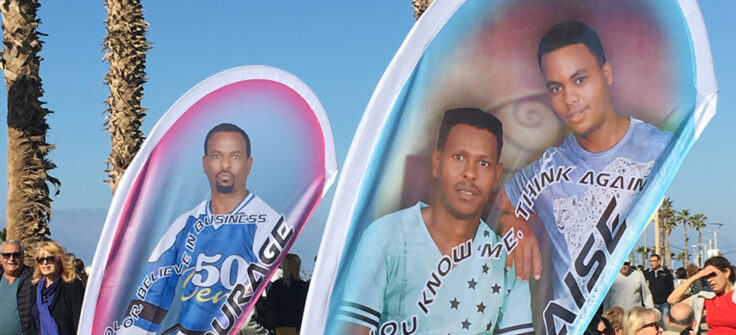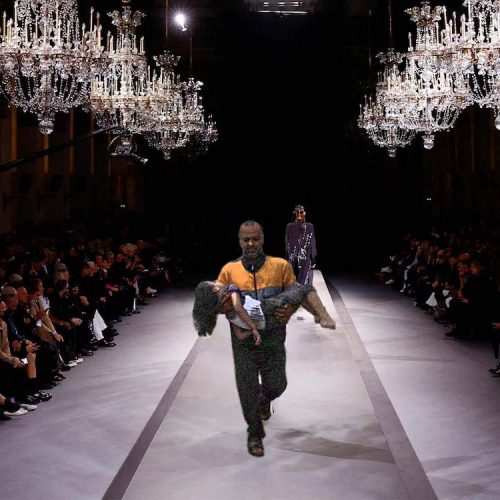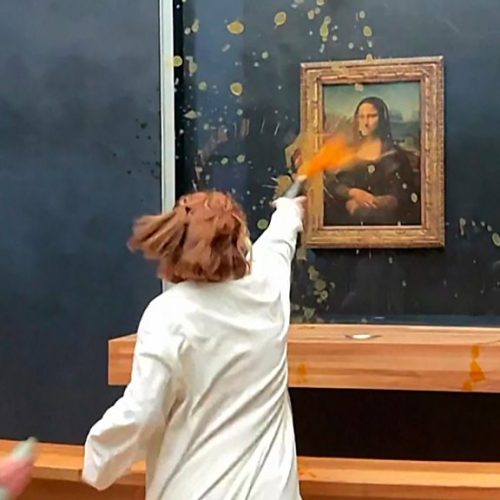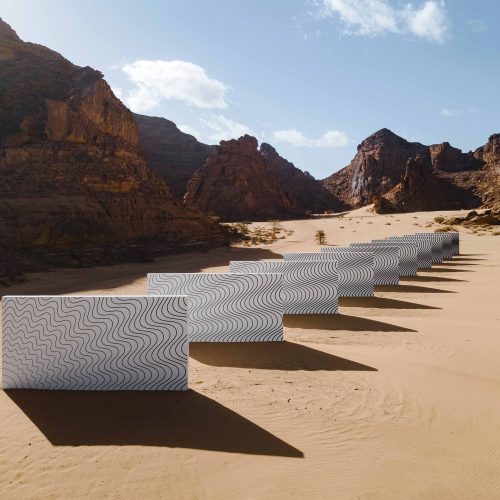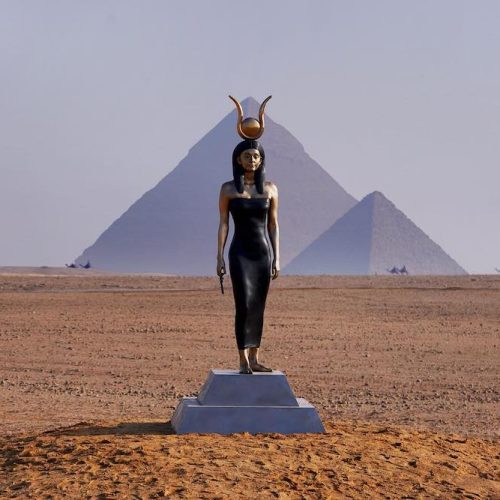31-year-old French-Canadian-Lebanese artist Alicia Mersy’s work is grounded in personal experience and defined by rebellion. Playing with Y2K internet aesthetics—but remaining politically subversive—the New York-based Central Saint Martins graduate blurs the boundaries between the real and the virtual.
Mersy studied political science and majored in Arab studies, which helped her unravel her identity. She then decided to move into art, as a way of making sense of her journey to self-acceptance. As soon as she left university, she then flew to Palestine and became a video activist.
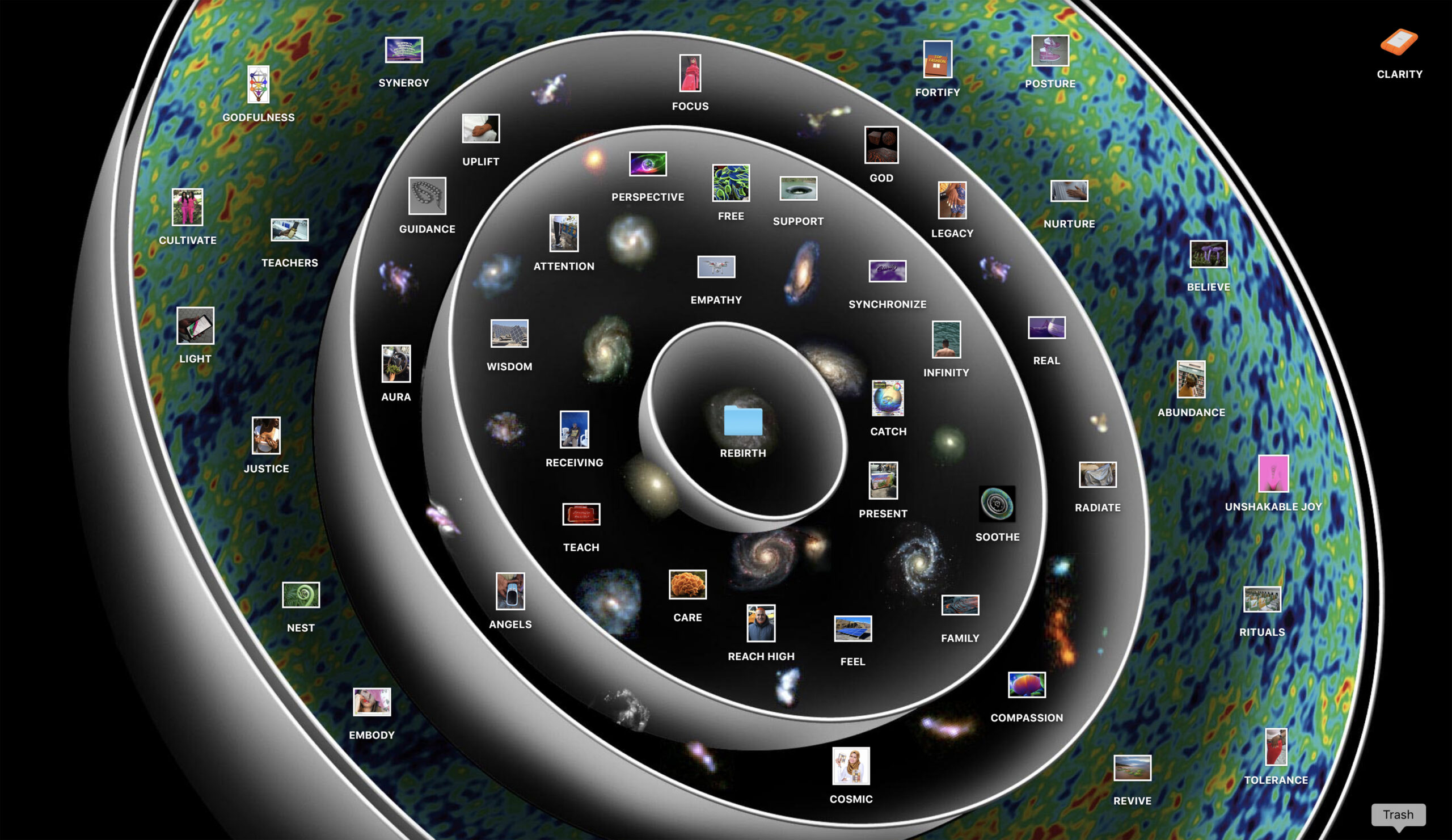
As she now surfs across documentary and 3D video animations, her body of work juxtaposes a deep exploration of identity (whether it’s racial, cultural, gender or personal) with comedic, sci-fi inspired visual gags. Fundamentally, Mersy uses somewhat gimmicky internet aesthetics to draw the viewer’s attention to tough and often under-represented topics.
We caught up with Mersy to find out how she found self-love in Palestine and why technology can transform the way we represent ourselves.
Let’s talk about your work in Palestine. You worked with the African asylum seeker community and in the Negev Desert with Bedouins. How did you initially get engaged with these communities?
On my first trip to Israel (occupied Palestine), I worked with the organization Active Vision, whose mission was to work with young African refugees who arrived in Israel on their own and make video workshops with them. Later I started spending time in the central bus station of Tel Aviv and made friends there who owned phone shops, injera restaurants and photo studios, and I started documenting them and their personal life stories. And from that came my project You Thrive Cause You Must, in collaboration with a photographic business studio. In Ramallah for instance, I was walking and saw those really cool boys hanging in Al Manara square. I went up to them and asked if they could take me to the top of a building so I could take a close shot of this huge poster of Marwan Barghouti, a Palestinian resistant, and they said: “You want a photo of our uncle?” And so I just spent days there and came back to visit and made a film about how it feels to be a teenager in the West Bank.

Identity-wise, how did it feel moving to Palestine after having spent your life in Montreal?
I went to this very elitist Christian conservative school with mostly girls from good families and wealthy neighbourhoods, and so at that time I felt poor and hairy and wanted to pull off my nose from my face. When I went to Palestine and saw all these people that looked like me and moved like me, I definitely started a process of releasing anxiety and getting rid of so much self-hate.

Artistically, do you feel like you have a responsibility to critique Western perceptions of the Middle East?
I’m obsessed with this rapper from the Galilee and he says something so deep that describes exactly how I want to answer this question. “It’s not me, there is no me. I am a tube God uses to transmit what he needs to the world”. We are all tubes! We forget we are spiritual beings having a human experience. So, in that sense yes, I have a big responsibility to critique Western perceptions, and all the Eurocentrics that I meet.

You’ve just started an artist residency that’s focused on technology. How is technology influencing art?
I feel technology can be a practical way to get rid of ourselves, which is my all-time goal. Imagine if we could manage to really see ourselves from outside our mind and body and emotions and ideologies. I think the whole world could transform. But for that to happen, we can’t just be wearing virtual reality headsets, we need to nurture and commit to our inner technologies too.





